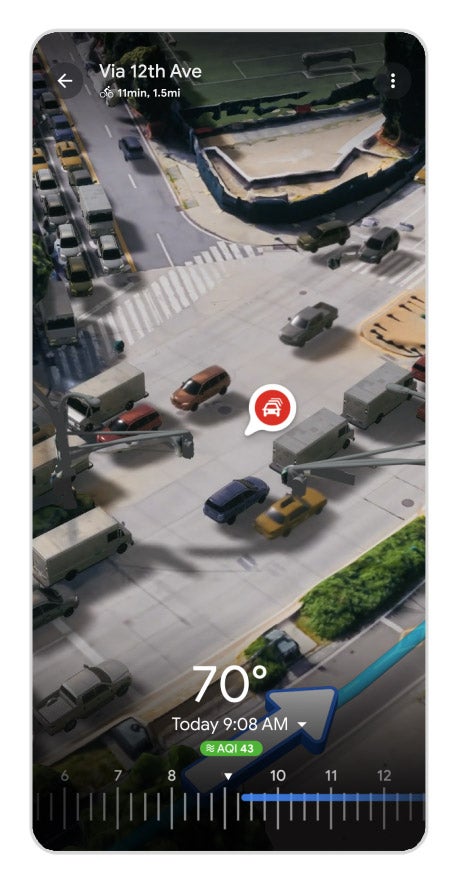Heading out the door? Read this article on the new Outside+ app available now on iOS devices for members! Download the app.
Google announced on June 14 it is launching several new AI-based products and updating some of its preexisting features to help travelers plan their best trips—and yes, that includes your next ski trip.
The first AI update is for the Google search engine itself, a well-known tool for all aspects of trip planning, from “Where should I go skiing this year?” to “Will it snow in Vermont for Christmas?” (We hope the latter is always a yes, especially after this past season). Instead of searching for specific questions leading users to different websites, this new technology will scour the web and cultivate AI-generated answers.
The product known as Search Generative Experience (SGE) is now offered through Google Labs and works to help keep search queries organized and minimize having multiple tabs open. With SGE, US-based users can ask tailored questions like “What is the best month to ski in Utah?” and SGE will pull a thorough answer and help guide follow-up information like average temperatures or a sample packing list.
Packing list suggesting you need a new Gore-Tex jacket or the perfect sweater for après? Now Google Shopping will allow us to see how these products look on 80 different real models. Google has worked to photograph models (40 male, 40 female) of varying body types and sizes and standing in various types of poses to amplify the shopping experience.

Using these real live human models (have to clarify these days!) and the real product shots from sites you already shop, users can now see an item worn by 40 types of models to help determine the best size and fit for purchase. Google launches the technology for women’s tops this week but plans to expand to bottoms and men and children in the coming months.
And as great as pre-trip shopping is, what are we to do when we inevitably see something in a store or on the chairlift we must have? Well, no need to use search words to guess when there’s Google Lens, an already existing service made better with new AI tech.
Users can use the lens feature on their phone camera to scan something they like, and not only will Google try to match where the item is from but will also offer up suggested similar items filtered by style, price, or even pattern. And, if you find something you really like but want it in a different form (think a pool towel you’d love to see as a rug), Google can help you find that too.
Another new update to Google Lens is the ability to detect skin ailments like rashes or dermatitis, which is definitely gross but hey, say you used the wrong slopeside hot tub, or you take off your boots, roll down your socks, and notice something doesn’t look right on that big toe. Now, you can scan the area, and Google will search for related images for a “non-medical diagnosis.” From Google’s legal team: All users are encouraged to seek professional medical assistance if symptoms appear serious.
Of course, Google Maps is an imperative travel tool for any travel, especially with its recent update that allows users to save full locations like national parks offline. With the new AI update, the maps help users feel comfortable in new locations by showing real-time, AI-generated traffic patterns so walkers, bikers, and drivers alike can best predict their routes.

For city-based travel, Google Maps is implementing AI to give users a real feel for over 500 landmarks across the globe by adding live temperature, weather, and crowd patterns taking much of the guesswork out of seeing a new sight.
Finally, Google is going against the competition with their new tool Bard, originally launched in March. Similar to ChatGPT, Bard is Google’s AI search product. Ask Bard to come up with a list of the most family-friendly ski resorts all within a 5-hour drive of NYC, or if flights to Chile are predicted to drop before August, and Bard will help users to seek answers without endless searching. Much like ChatGPT, Bard relies on the “deep learning algorithm” of search results to help narrow down the many answers that result from a typical Google search.
However, All that learning will take Google some time, so if you’re looking for the best ski town bars according to real-life skiers, we’ve got what you need right here.